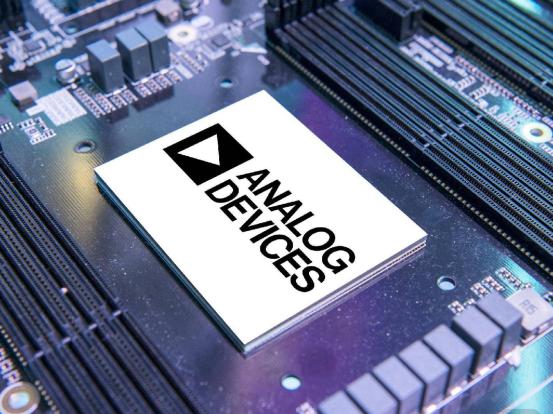ADI ADM Series: High-Performance Signal Conditioning and Interface Solutions
In today's complex and ever-changing electronic systems, reliable signal transmission and conversion are crucial for stable system operation. Analog Devices (ADI), a global leader in semiconductor technology, has established its ADM series as the go-to choice for many engineers and designers due to its outstanding performance and wide applicability. The ADM series plays a significant role across various fields, including industrial automation, automotive electronics, communication base stations, and medical equipment.
Detailed Explanation of ADI ADM Series
 The ADM series from ADI primarily includes digital isolators, RS-485/RS-422 interface chips, and signal conditioners, which are widely used in industrial control, communication infrastructure, and automotive electronics. These chips are mainly designed to convert and transmit signals between different electrical standards, such as converting TTL/CMOS levels to standard communication levels like RS-232 and RS-485. For example, the ADM232A is a high-speed, 5V, 0.1µF CMOS RS-232 driver/receiver with a data rate of 200kbps, single 5V supply, and ±9V output swing, meeting the EIA-232-E and V.28 specifications.
The ADM series from ADI primarily includes digital isolators, RS-485/RS-422 interface chips, and signal conditioners, which are widely used in industrial control, communication infrastructure, and automotive electronics. These chips are mainly designed to convert and transmit signals between different electrical standards, such as converting TTL/CMOS levels to standard communication levels like RS-232 and RS-485. For example, the ADM232A is a high-speed, 5V, 0.1µF CMOS RS-232 driver/receiver with a data rate of 200kbps, single 5V supply, and ±9V output swing, meeting the EIA-232-E and V.28 specifications.
Main Application Scenarios of ADM Series
1. Industrial Automation: In industrial environments, communication between devices requires high reliability and interference resistance. RS-485 interface chips in the ADM series, such as the ADM485, enable multi-point communication and support long-distance signal transmission, making them suitable for industrial field buses.
2. Automotive Electronics: The electronic systems within a vehicle need to operate stably in harsh electromagnetic environments. Automotive-grade ADM chips, like the ADM2582E, have undergone rigorous testing to withstand high temperatures, high humidity, and strong vibrations, ensuring reliable communication in automotive electronic systems.
3. Communication Base Stations: Communication base stations handle large amounts of data transmission and require extremely high signal integrity and data rates. High-speed interface chips in the ADM series meet these demands, ensuring efficient communication between base stations and terminal devices.
4. Medical Equipment: Medical devices have extremely high requirements for signal accuracy and reliability. Low-power, high-precision interface chips in the ADM series ensure stable communication between medical devices, safeguarding the accurate transmission of patient data.
Detailed Introduction of Popular ADM Series Models
● ADM232A: This is a high-speed, 5V, 0.1µF CMOS RS-232 driver/receiver with a data rate of 200kbps and single 5V supply. It features an integrated DC/DC converter to achieve ±9V output swing, meeting the EIA-232-E and V.28 specifications.
● ADM485: This is an RS-485 interface chip that supports multi-point communication and is suitable for industrial field buses. It has high interference resistance and long-distance transmission capabilities, ensuring stable communication between industrial devices.
● ADM3078EARZ: A 3.3V, ±15kV ESD-protected half-duplex and full-duplex RS-485/RS-422 transceiver supporting a data rate of 16Mbps.
● ADM811SARTZ: A microprocessor supervisory circuit with a low-level effective push-pull reset output, supporting an input voltage range of 1.2V-5.5V and packaged in a 4-lead SOT-143.
● ADM3491ARZ: A 3.3V low-power, full-duplex RS-485/RS-422 differential line transceiver supporting a data rate of 10Mbps, featuring thermal shutdown, a receiver input impedance of 12kΩ, allowing up to 32 transceivers to be connected on the bus, and packaged in a 14-lead SOIC.
Similar Series and Representative Models
Manufacturer | Series | Representative Model | Main Features |
TI | ISO series | ISO7840 (digital isolator) | 5kV isolation, 100Mbps |
Silicon Labs | Si86xx | Si8642 (digital isolator) | 5kV isolation, 150Mbps |
NXP | MC33 series | MC33XS2412 (CAN FD transceiver) | Automotive-grade, 5kV isolation |
ST | iCoupler | STISO621 (digital isolator) | 4kV isolation, 10Mbps |
Considerations When Selecting Similar Chips
1. Performance Matching: When selecting similar models, ensure that their performance parameters match the application requirements. For example, data rate, supply voltage, and interference resistance should be chosen based on specific application scenarios.
2. Compatibility: Ensure that the selected chip is compatible with the existing system. For example, pin layout and electrical characteristics should match the existing design.
3. Reliability: For critical applications such as automotive electronics and medical devices, choose automotive-grade or medical-grade chips that have undergone rigorous testing and certification.
4. Power Consumption: In low-power applications, select low-power chips to extend the device's operating life.
5. Environmental Adaptability: For devices that need to operate in harsh environments, such as industrial automation and communication base stations, choose chips with high interference resistance and environmental adaptability.
Conclusion
The ADM series from ADI has significant advantages in the field of signal isolation and interface communication, with extensive applications in industries such as industrial, automotive, and medical. Popular models like ADM232A, ADM3078, and ADM3491 have become mainstream in the market due to their high isolation, high data rate, and low power consumption. When selecting models, engineers should consider factors such as isolation requirements, communication data rate, and temperature range, and can also refer to similar products from other manufacturers like TI and Silicon Labs for comparison to ensure the reliability and optimal performance of system design.
Website: www.conevoelec.com
Email: info@conevoelec.com








